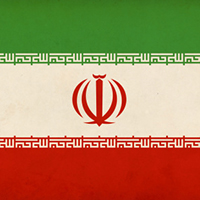 Dr Michael F Hopkins is a Senior Lecturer in American Foreign Policy in the University of Liverpool’s School of History
Dr Michael F Hopkins is a Senior Lecturer in American Foreign Policy in the University of Liverpool’s School of History
“In the early hours of Sunday 24 November an international deal was reached on the Iranian nuclear programme. President Obama called it an “important first step,” offering the prospect of “a new path toward a world that is more secure – a future in which we can verify that Iran’s nuclear programme is peaceful and that it cannot build a nuclear weapon.”
“Iran’s Supreme Leader, Ayatollah Ali Khamenei, described the agreement as the “basis for further intelligent actions.” On the other hand, two regional powers who fear Iran’s international ambitions were highly critical. Israel’s Benyamin Netanyahu said it was an “historical mistake,” while the Saudi Arabians warned of the unreliability of the Iranians.
Concessions
“The deal was negotiated by the P5+1 group, the five permanent members of the UN (Britain, China, France, Russia and the Soviet Union) plus Germany. Under the agreement Iran promised not to enrich uranium above 5 per cent and to return to a harmless oxide its stockpile of uranium enriched to 20 per cent purity, a level just short of weapons grade. It will reduce enrichment and halt further expansion at the Arak plutonium plant, which could be another route to a nuclear device. Finally, Tehran accepted a more extensive inspection regime by the International Atomic Energy Agency (IAEA).
“In return, certain Iranian assets will be released, estimated to be worth $7bn (some commentators suggest the figure might be higher); and various economic sanctions on the country will be lifted. The agreement will last for six months during which time the parties will pursue a more comprehensive, long term arrangement.
“What, then, are the prospects for progress? Should the international team of negotiators trust the representatives from Tehran?
“Although six countries reached the deal with Iran, success or failure depends on the US-Iranian relationship. The orthodox view of their relations is that they have been poisonous; and, for the most part, this is true. The Islamic revolution of 1979 overthrew the Shah (put in power by American-sponsored coup in 1953) and removed US economic, military and moral influence. To Iran’s new rulers the United States was the “Great Satan.” Washington regarded Iran as a rogue nation: it held 52 Americans hostage; it fought a war against Iraq; it sponsored the terrorist organisation, Hezbollah; and it encouraged its fellow Shia Muslims to cause trouble in Sunni-dominated Saudi Arabia, Kuwait and Bahrain.
“Yet an opportunity for cooperation came after the al Qaeda attacks on the World Trade Center and the Pentagon on 11 September 2001. The Iranians offered help as the Americans planned military action against the Taliban regime in Afghanistan. Unfortunately, this opportunity was lost in President George W. Bush’s rhetoric against weapons of mass destruction. In his state of the union address in January 2002 he said the nascent Iranian nuclear programme, together with Iraq’s chemical weapons and nuclear programme and the North Korean missile programme, formed an “axis of evil.” Vice President Dick Cheney and Defense Secretary Donald Rumsfeld favoured an uncompromisingly tough attitude; and even hinted at the possibility of military action.
“In his inaugural address in January 2009, Barack Obama extended the hand of cooperation. When it was spurned by President Mahmood Ahmadinejad, he secured even tougher UN sanctions against the regime. There the issue lay until the start of Obama’s second term in January 2013 and the arrival of John Kerry as Secretary of State, who brought a renewed American focus on the region. But more important was the election in June 2013 of a new Iranian leader, Hassan Rouhani, who committed himself to improving relations with the West. Suddenly there was the chance of an agreement.
‘Trust but verify’
“The story of the road to the deal contains hopeful elements. It seems a worthwhile first step, but it will only prove valuable if it leads to a more durable settlement; and this will only emerge when each party to the deal gains something it values.
“The international community wants to prevent Iran from obtaining a nuclear bomb. If the Iranian protestations that they seek only civilian use of nuclear power are genuine, then it is theoretically possible to find a settlement that satisfies both parties. Such an agreement will not remove tensions with Israel and Saudi Arabia, but Iran might act differently as a full member of the international community.
“As he sought to negotiate an end to the Cold War in the 1980s President Ronald Reagan quoted a Russian proverb to the Soviet leader, Mikhail Gorbachev – “trust but verify.” This might serve as a motto for the P5+1 negotiating team in the coming months.”
